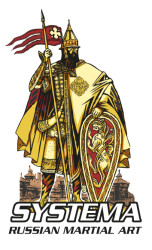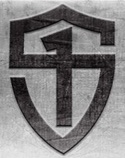The Obligation of Protection
What is a Warrior?
Much has been written throughout the ages about what it means to be a warrior. Each culture seared its own unique brand onto the fabric of the warrior tapestry as it unfurls through time. Sun Tzu and Miyamoto Musashi gave us amazing guides regarding strategy and behavior – both in the arenas of combat and in everyday life. Homer beautifully spins the tales of Ulysses’ quest and the Trojan War – works of fiction, but full of contemporary interpretations of correct behavior by the noble warrior. Thucydides documents the feats of the Peloponnesian War. His views on political realism coupled with keen observations of conflict in his time revealed a deeper knowledge of human nature. The Spartans are to this day considered one of the greatest military cultures of all time and the famed Battle of Thermopylae is still taught in military academies.
Most scriptures make references to great battles and conflicts between good and evil – citing the need for the proponents of good to do great deeds to thwart evil or a personification of evil. Even in mystical worlds beyond our comprehension, such as the battle of the Archangel Michael with Lucifer and the numerous battles in the myriad planes of existence contained within Vedic and Buddhist religions, the struggle of good vs. evil endures. Native American cultures placed special significance and responsibility on the warriors within their nations and tribes.
But what makes someone a warrior? Most people think upon the title of “Warrior” with a degree of respect, befittingly so. A warrior strives for honor, duty, discipline, integrity and humility. He devotes his life to these principles, as well as gaining an understanding of the nature of evil and what is needed to combat it. He does not seek reward or fame, for his duty is more than enough compensation. He will willingly lay down his life to protect the things he holds dear, whatever they may be. History has shown that those who are not warriors will never understand why a warrior does what he does. That’s why I consider it a calling or a vocation – you either feel it or you don’t; no sense trying to explain it if you don’t already feel it. Authentic martial artists and members of elite military units understand what I am talking about. Beyond these reasons lies the concept of the complete warrior, which was fully integrated in the ancient traditions. A warrior learned much more than the domain of physical conflict, and I firmly believe these other areas of knowledge are what made the best warriors, and ultimately, the best human beings. It is a pity there is such a lack of this type of training for our modern warriors.
I consider myself a warrior. I have lived and died with warriors; laughed, cried, drank, bled, and endured pain difficult to explain in mere words with my warrior brethren. Warriors are great people. But not all who fight are warriors; not all soldiers, not all police officers. As with any True Path, those who tread It are rare and are the exceptions vs. the rule. The true warrior is quick to laughter – and also quick to anger, albeit a righteous anger. There are no veils or pretense or politics. In the company of fellow warriors, you can just “be”. He is loyal to his family, friends, principles and himself. He is either deeply devoted to God or has Faith that can move mountains. Like a fine spirit, the warrior matures with age, becoming more refined, mellow and yet more potent.
A warrior must also engage in combat, which brings us to another special quality of the warrior: humility. Those that have seen actual combat and have experienced that life-changing moment are often the most humble of people. Why? Because once you witness how easily life is taken, you understand it is nothing to brag about. Your entire view of life changes from that time forward. Usually it is in a positive manner, but not always. Often, a desire to live life more fully and to devote oneself to protecting the precious gift of life arises. This often marks the true warrior. My experience has shown me that most barroom loud mouths who go on and on about their “military experiences” are usually full of you-know-what. The same applies to many former military personnel who will tell you they were in Special Forces or the SEALs; but when you challenge them on it (if you know what to ask) you often find out they are also full of you-know-what. Rarely do you hear the SEAL or the Ranger or the Special Forces soldier or Recon Marine outwardly boasting about their deeds – it is just not in their nature (and I fully understand there are many service men from other units, as well as law enforcement agencies where the same philosophy applies). Why? There are many reasons, but I will offer two: first, special operations operators are quiet, reserved and stealthy by nature and are typically much better listeners than talkers. Secondly, most of these operators have seen stuff that they would rather not talk about – the memories are too painful or too private for generic social banter (of course, it’s often quite the opposite in a private, “safe” location) – not to mention the often classified nature of what they have done. OK, I will add one more: these operators are the best of the best. They don’t need to impress you or convince you of anything; they already know in their hearts what they are made of and are content with that. As with so many professions, it is often those who are the best at their jobs that are the most available, down-to-earth and humble; warriors are no different.
The Calling
Those of us who feel the calling, the duty, the vocation of the warrior path take it for granted that with the skills and knowledge we have acquired, a responsibility exists to provide protection to those who cannot – or even will not – protect themselves. As it was so eloquently stated by Lt. Colonel David Grossman, “The ‘warrior’ is the 1% who protects the 98% from the remaining 1% who would do them harm.” It could be argued that the actual numbers are less than one percent, but the point is made clear; the warriors of the world are a rare breed.
There is a genuine need for protection. I am, at heart, a peaceful man. The realization that what I know and what I can do are necessities for this world saddens me a great deal. Yet it is a truth. We must be prepared and willing to protect our fellow man and certainly our loved ones. We all wish that a truly peaceful world existed and the need for combat would vanish. Scriptures, however, of all religions tell us this present world is full of evil. And the play of good vs. evil continues to unfold. Without those who are willing to stand up to this evil, it would completely dominate this world; it almost does already. Without the protective measures provided by warriors, who will stop the relentless march of this evil?
Specifically focusing on the obligation of protection, however, let us explore some relatively modern incidents that dictate to us the genuine need for protection. If we examine even just a few attacks against major religious, social, political leaders or celebrities – without even considering presidential assassinations and attempted assassinations – we can make some profound observations. Some of the most well known attacks against these targets include:
- Mahatma Gandhi – assassinated in 1948
- Martin Luther King, Jr. – assassinated in 1969
- Pope John Paul II – attempted assassination in 1981 (most well-known); also in 1982; and 1995 as part of the Al-Qaeda Bojinka Operation
- John Lennon – assassinated in 1980
There are many others we could examine, but this short list is enough to illustrate the point.
Martin Luther King, Jr., Mahatma Gandhi and John Lennon all preached peace as a mechanism for change, and they certainly achieved great deeds by their work, yet all were eventually undone by lack of protection. And I am not saying that if they had formal protection they would have lived. No, the point is, what if they were protected and had lived longer: what more could they have done? What if just one of these three had survived? How different might our world now be? This is a discussion that can have no satisfactory conclusion, since we cannot turn back the hands of time. But – my point is this – the concept of protection and the difference it can make in this world; those who can provide this protection, should – as your actions could actually change the trajectory of history.
There are numerous historical examples of the concept the “Obligation of Protection” being put into practice:
- The Shaolin Temple’s warrior-monks as protectors of those who could not protect themselves
- The Akhara system of the Swami order in India originated to protect fellow monks from the Muslim invasions
- The Kshatriya class in ancient India (of which both the historical Buddha Shakyamuni and Bodhidharma were members) were considered holy warriors
- The Knights Templar, Charlemagne’s Paladins in Europe and the Orthodox Christian Holy Warriors of Russia
These warriors of the past give us a precedent and a blueprint of how to behave and operate as modern protectors and warriors. Let us keep them in mind as we perform our duties.
Warrior Mind
So what is the ideal mental, emotional and spiritual posture of the warrior? A warrior on the Path will not fear death (please continue reading to understand what I mean). How one feels about, and how one embraces death is a topic that cannot be overemphasized. The following phrase says it all:
“A warrior is not afraid of death; he is afraid of dying”
This succinct maxim defines the warrior’s path. Death, for the warrior, is a certainty (as it is for all of us). The true warrior does not fear death, however, because he has lived a pure life, and death is a part of the cycle of life. He is afraid of dying, however, because then he can no longer fulfill his duties. A warrior must always be prepared for death, yet ignore it – especially so in a combat encounter. Thoughts of personal safety and fear will paralyze the warrior and cause defeat. An empty mind, backed by the certainty of faith, correct intent and right action, will provide the path to victory – on all levels. Perhaps one of the reasons the warrior path became such a spiritual and faith-based practice is because no other profession has to face the realization of their own mortality on a constant basis. This proximity to the “other side” must have motivated the warrior to live the highest life possible at each and every moment. By making the commitment to protect others – to perhaps even lay down his life for another – the warrior displays some of the greatest qualities found in humankind: compassion, sacrifice, duty and yes – even love. So the obligation of protection taken up by the true warrior makes our world a better, safer and happier world to live in. Let’s all try to remember this.




Speak Your Mind
You must be logged in to post a comment.